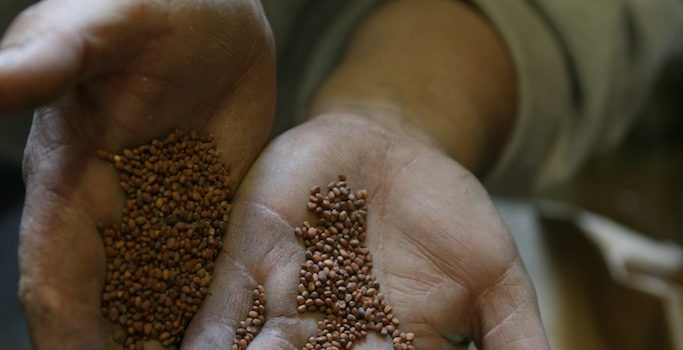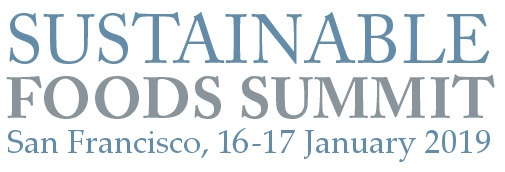Journal of Agriculture,Food Systems, and Community Development
ATTENTION: Professionals Researchers Graduate Students
CALL FOR PAPERS
The Essential Principles of Small- and Mid-Scale
Food Value Chain Development
Manuscripts due February 15, 2011
For details about JAFSCD and author guidelines, visit www.AgDevJournal.com/submissions.
JAFSCD invites researchers, ag/food system development professionals, and others to submit applied research papers, critical reflection essays, commentaries, and other manuscripts that provide critical insights into small- and mid-scale food value chain development.
Food value chains (FVCs) are a hot topic among agriculture and food systems development professionals. In FVCs, farmers and ranchers are treated as strategic partners, not as interchangeable — and exploitable — input suppliers. Values-based food supply chains (value chains) are strategic alliances between farms, ranches, and other supply-chain partners who distribute rewards equitably across the supply chain. They can include farm-to-institutions (schools, hospitals, prisons), multiproducer processors and wholesalers, multifarm CSAs, food hubs, food webs and networks, and the like. All partners in these business alliances recognize that creating maximum value for the product depends on significant interdependence, collaboration, and mutual support.[1]
Research suggests that successful mid-scale FVCs are built on three foundations:
* Appropriate volumes of high-quality, differentiated, market-engaging food products, coupled with value-adding stories of people, land, and practices;
* Strategic partnerships based on trusting, transparent, and win/win business relationships; and
* Effective, efficient supply-chain management and logistics, including product marketing, aggregation, processing, distribution, and record-keeping.
Papers can explore specific components within a chain (a farmer co-op or association), interactions of two or more links in a chain (farmers, wholesalers, processors, retailers, and eaters), or an entire chain. Examples include:
* Case studies of successful or failed FVC programs
* Research and education strategies that help build resilient FVCs
* How are FVCs playing a role in rural development?
* The role of FVCs in increasingly multifunctional rural landscapes
* Systematic analyses of key differences between FVCs and traditional food supply chains
* Local and global FVCs: influence of globalization on FVCs; should these be accepted or mediated?
* Overview analysis of the values chain sector (comparisons or outcomes across many cases)
* Implications of new food safety legislation on values chains
* Storage and transportation logistics
* Branding and geographical identity
* Performance and impact analysis
* Scaling up
* Building trust and transparency
* Business planning and/or record-keeping
The Journal of Agriculture, Food Systems, and Community Development is a NEW online-only international, peer-reviewed journal focused on applied research and best practices in the development of thriving farming communities and sustainable food systems. Peer reviewers include development practitioners, organization and agency staff, faculty, graduate students, consultants, and farmers from around the world with expertise in a wide range of agriculture and food-systems issues as they relate to community, ecological sustainability, and economic development. JAFSCD is online at www.AgDevJournal.com.
[1] Adapted with permission from Stevenson, G. W. and Pirog, R. (2008). Values-based supply chains: Strategies for agrifood enterprises of the middle. In T. Lyson, G. W. Stevenson, and R. Welsh (Eds.), Food and the Mid-Level Farm: Renewing an Agriculture of the Middle. Cambridge, MA: MIT Press.
OPEN CALL
The Journal welcomes papers at any time on any subject related to the development aspects of agriculture and food systems.
Content can focus specifically on conservation and farmland protection, value-adding, cooperative marketing, value chains, distribution, farm labor, market research, consumer decision-making drivers, and other topics. Authors are encouraged to submit applied research papers, commentary, and thought-provoking articles that inform the emerging field of agriculture and food systems development. Faculty and students, Extension and other educators, planners, consultants, staff with farm agencies and farm and community organizations, and farmers are invited to submit material.
For both calls, manuscripts should focus on the practical application of these innovations: the organization and mechanics of a program or strategy; engagement of stakeholders; challenges and unique solutions; impact analysis; and lessons learned. The Journal encourages "accessible scholarship" -- minimizing jargon, writing in the active voice, and addressing the interests of both practitioners and academics. These papers should inspire and inform new and existing community development efforts to establish and sustain farms. Papers that feature survey results with descriptive statistics, or case studies featuring best practices (or even post-mortem analyses), are highly encouraged.
The Journal of Agriculture, Food Systems, and Community Development
is published by New Leaf Publishing and Consulting (www.NewLeafNet.com).





















